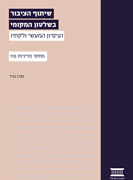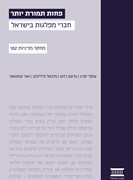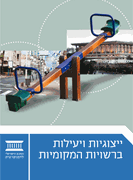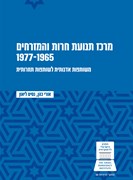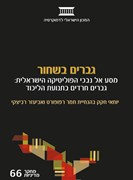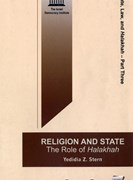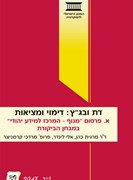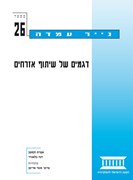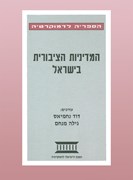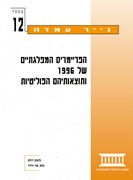

Publications Regarding political participation
Articles
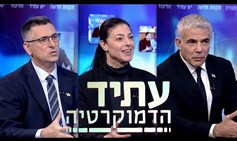
IDI Holds Forum With Party Leaders for First-Time Voters
In a special broadcast ahead of the March election, first-time voters were given the opportunity to pose difficult questions to leaders of the major parties.
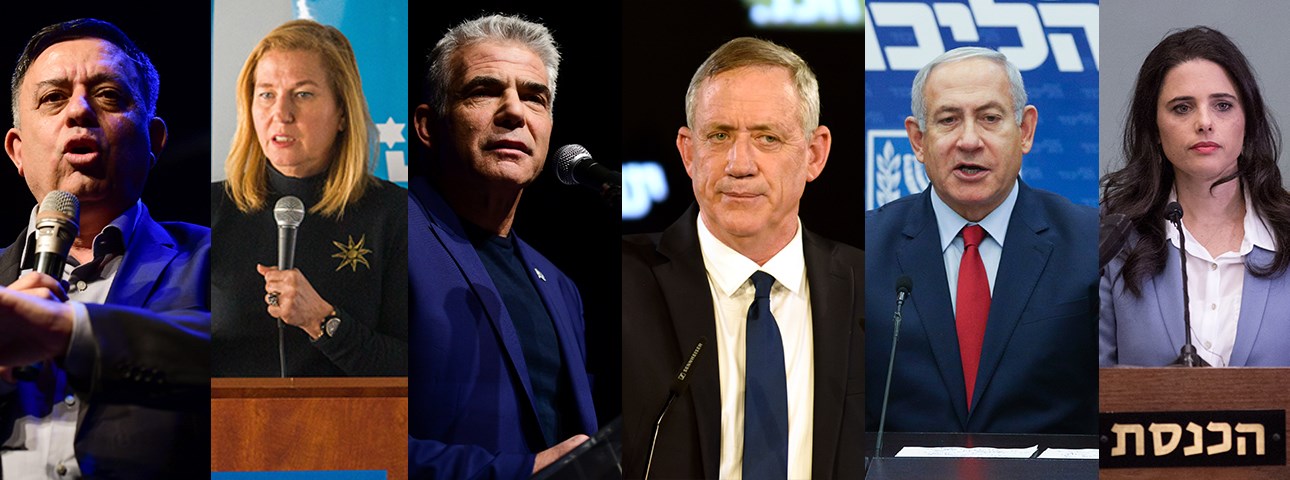
Special Elections Survey
Written By: Prof. Tamar Hermann, Dr. Or Anabi
The Jewish public is divided over the question whether the prime minister should resign if indicted by the Attorney General, pending a hearing; 52% of the Jewish public believes that Israelis living abroad should also have the right to vote
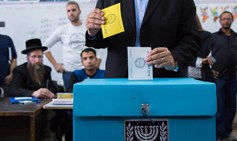
Israeli Politics Fractured: The System Needs Fixing
Written By: Prof. Gideon Rahat
It is commonly accepted that in order to defeat Netanyahu, the political parties in the center and on the Left must unite and present a single and clear alternative. However, under the current system, this claim is simply not true.
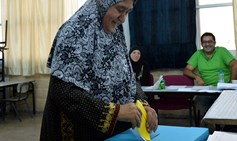
Why Local Elections Matter
Written By: Yohanan Plesner
"While Israeli national politics get most of the coverage, it is the local level that in many cases has the greatest impact on Israeli lives." Read Yohanan Plesner's op-ed on the upcoming municipal elections and why electoral reform is required, both on the local and national level.
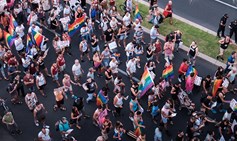
Supporting the LGBTQ's Struggle for Equality
The Israel Democracy Institute’s management announced its support for the LGBTQ’s struggle to amend the newly passed Surrogacy Law so as to included gay couples.
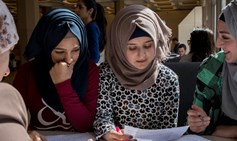
Involving Arabs in political decision-making is right in principle and vital for Israel’s social cohesion
Written By: Dr. Nasreen Haddad Haj-Yahya
The majority of the Arab public want to be included in the State’s decision-making processes, and support Arab ministers serving in the government.
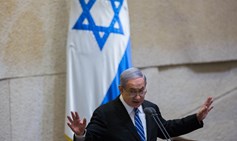
Jerusalem Report: Welcome to 21st Century Politics
Written By: Elli Wohlgelernter
Poorly funded and under threat from personalization and social media, political parties are in decline.

IDI Scholars in Favor of Bill that would Increase Funding for Parties that Hold Primaries to Select their MKs
"The law in Israel has a double-standard and discriminates against parties with democratic systems that enable the wider public to take an active role in politics"

Who Doesn’t Vote in the Israeli Knesset Elections?
Written By: Ella Heller
What has contributed to the decline in voter turnout in Israel? This article explores possible causes and presents a profile of the non-voters in the 2013 Knesset elections. The findings that it reports raise concerns about the value of equality in political participation in Israel.
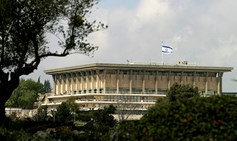
23 Knesset Seats is Not a Victory
Written By: Yehoshua Oz
In an op-ed in the Jerusalem Post, Yehoshua Oz, IDI's Director of International Communications, argues that pundits eager to crown a victor in the 2015 elections have lost sight of the fact that winning one-fifth of the Knesset seats is no victory.
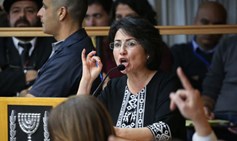
Heart vs. Head: The Case of Hanin Zoabi
Written By: Prof. Mordechai Kremnitzer, Admiral (Res.) Amichay (Ami) Ayalon
Prof. Mordechai Kremnitzer and Admiral Ami Ayalon argue that while the heart has difficulty defending MK Hanin Zoabi's freedom of expression, the head demands that we object to the decision to remove her from parliamentary activity for six months.
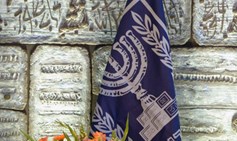
The Israeli Presidency: Unnecessary Institution or Vital Symbol?
Written By: Dr. Dana Blander
As the 2014 presidential election draws near, once again there have been calls to do away with the institution of the presidency. Is the President of Israel an unnecessary position or a vital symbol? IDI researcher Dr. Dana Blander analyzes the two sides of this question.

Brushing Off the Dust
Written By: Prof. Ofer Kenig, Nir Atmor
In an article written before the elections for the 19th Knesset, IDI researchers Ofer Kenig and Nir Atmor focus on five elements of Israel’s political system that they believe are in dire need of change.

Are Convicts Fit for Political Office?
Written By: Doron Navot, Prof. Mordechai Kremnitzer
IDI Vice President Mordechai Kremnitzer and Doron Navot, author of Political Corruption in Israel, discuss whether politicians convicted of crimes involving moral turpitude should be allowed to return to the Knesset.
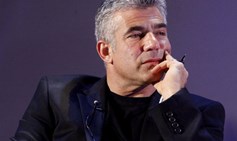
Yair Lapid in a Splinter Party Arena
Written By: Dr. Arye Carmon
Israeli journalist Yair Lapid's announced intention to enter politics sparked both excitement and speculation as to whether he planned to start his own party or to join one of the existing parties. While IDI Former President and Founder Dr. Arye Carmon applauds the entrance of talented, committed people into politics, he stresses the need for them to join one of the large, existing parties in order to stabilize the political system.

Anti-Politics
Written By: Hila Zaban, Yuval Lebel, Prof. Tamar Hermann
Anti-politics is the aversion of citizens to political institutions and elected political figures. In this article, IDI Senior Fellow Prof. Tamar Hermann and IDI researchers Yuval Lebel and Hila Zaban survey different types of anti-politics, distinguish between anti-politics and de-politicization, and present insights about Israeli anti-politics based on the findings of the 2008 Israeli Democracy Index.

Heading into 2008
Written By: Dr. Arye Carmon
Dr. Aryeh Carmon on emerging anti-political sentiments in Israel. He calls upon the Israeli public and media to show their sense of responsibility to politics by renewing their participation in its processes.
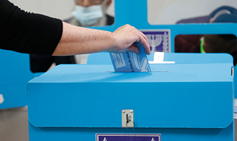
Despite it All – Israelis Must Vote
Written By: Yohanan Plesner
Fourth election in less than two years – so why should Israelis go out and vote?
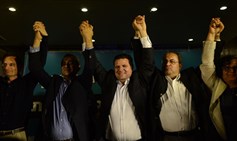
Arab Politics in Israel: Where are they Headed?
Written By: Dr. Arik Rudnitzky
The real story of the April 2019 elections took place outside the polling booth. In the Arab sector, the Movement to Boycott the Knesset Elections, a grassroots group based on Arab young adults and university students, working on the social networks with a shoestring budget, conducted an effective campaign with a simple and catchy slogan: “Boycott: The People’s Will.” This message stood in utter contradiction to the motto of the elections in 2015: “The Joint List: The People’s Will.”
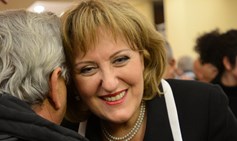
Lessons from the Yisrael Beytenu Affair
Written By: Dr. Assaf Shapira
Regulation, transparency and enforcement capabilities are crucial steps for lobbying to work.
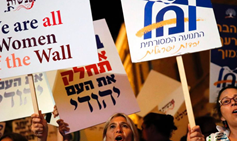
United by Outrage? Israel's Arab Citizens and American Jews
Written By: Dr. Nasreen Haddad Haj-Yahya
Now you know what it's like to feel marginalized and unequal in Israel. Arab citizens know that all too well. That's why we must join forces.

